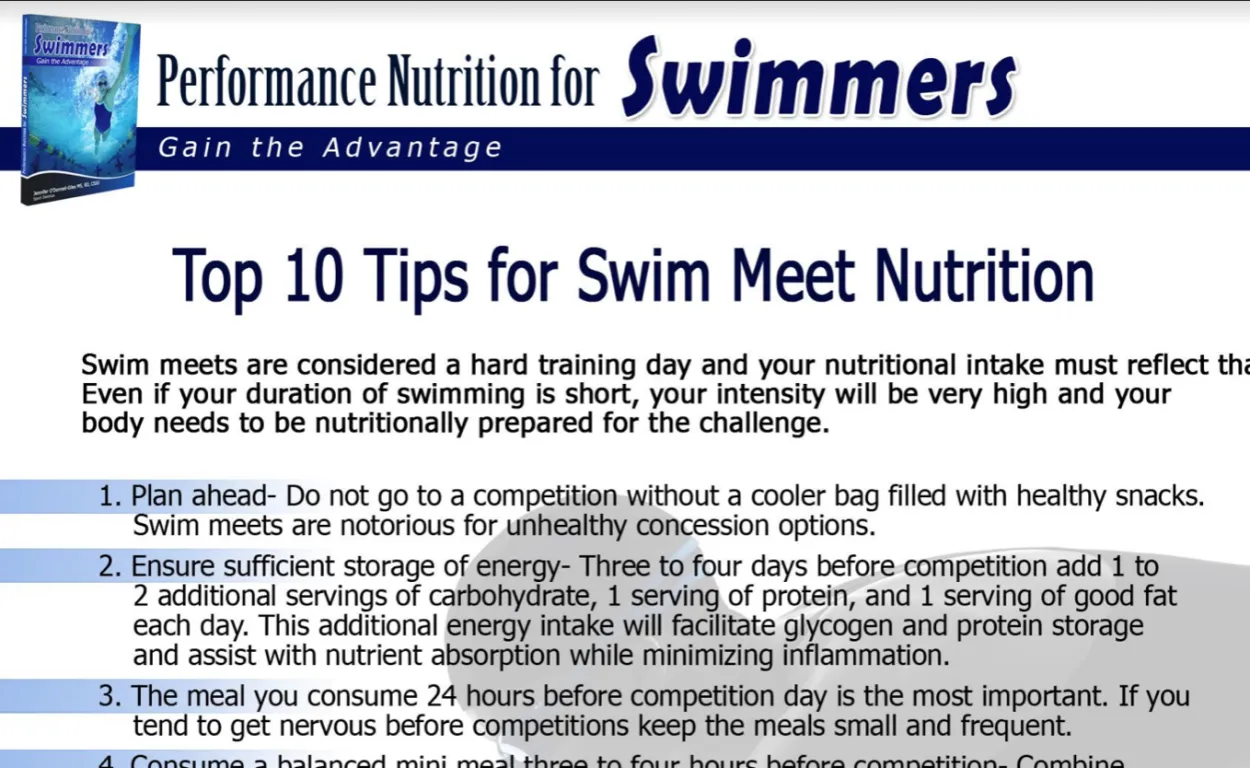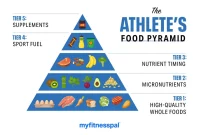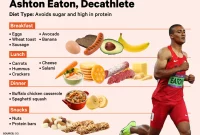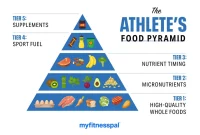Proper nutrition is vital for swimmers to enhance their performance and aid in quick recovery. In this article, we will explore the importance of consuming the right foods and nutrients before and after swimming, enabling swimmers to achieve their optimal athletic potential.
Dietary Requirements for Competitive Swimmers
Proper nutrition plays a crucial role in optimizing performance and promoting recovery for competitive swimmers. Swimmers engage in intense training sessions and competitions that demand high levels of energy and endurance. To meet these demands, swimmers should focus on consuming a well-balanced diet that incorporates the following key elements:
1. Carbohydrates
Carbohydrates are the primary source of fuel for swimmers as they provide the energy needed for both short bursts and long-duration swims. Opt for complex carbohydrates like whole grains, fruits, vegetables, and legumes to ensure a sustained release of energy throughout training sessions.
2. Protein
Swimmers require protein to support muscle repair and growth. Including lean sources of protein such as eggs, chicken, fish, and low-fat dairy products in their diet is essential. Aim for the recommended daily intake based on individual body weight and training intensity.
3. Hydration
Maintaining proper hydration is crucial for optimal performance. Swimmers should drink fluids before, during, and after training sessions to replace fluids lost through sweating. Water should be the primary choice, but sports drinks can be beneficial during longer training sessions to replenish electrolytes.
4. Micronutrients
Swimmers need to ensure adequate intake of vitamins and minerals for overall health and performance. Include a variety of fruits, vegetables, whole grains, and nuts in the diet to obtain essential micronutrients. Consider consulting a registered dietitian to assess individual needs and potential supplementation.
5. Timing
Eating strategically before and after training is essential for swimmers. Consuming a pre-workout snack or meal rich in carbohydrates provides energy, while a post-workout meal containing both carbohydrates and protein aids in muscle recovery. Timing meals and snacks appropriately will optimize performance and aid in the body’s ability to recover.
In summary, competitive swimmers should prioritize a well-balanced diet that includes carbohydrates, protein, hydration, micronutrients, and proper timing of meals. Each swimmer’s nutritional needs may vary, so consulting with a sports dietitian can help tailor a dietary plan for optimal performance and recovery.
Best Foods for Energy and Endurance
Proper nutrition plays a crucial role in enhancing performance and facilitating recovery for swimmers. By fueling your body with the right foods, you can optimize your energy levels and endurance in the water. Here are some of the best foods to incorporate into your diet:
1. Whole grains
Whole grains like quinoa, brown rice, and whole wheat pasta are excellent sources of complex carbohydrates. These are essential for sustained energy levels and can provide the fuel needed for long swims.
2. Lean proteins
Lean proteins such as chicken, fish, tofu, and beans are vital for muscle repair and recovery. They also help with the growth and maintenance of lean muscle mass, contributing to overall strength and endurance.
3. Fruits and vegetables
Fruits and vegetables are packed with vitamins, minerals, and antioxidants that support immune function and reduce inflammation. Opt for a variety of colorful options to ensure you’re getting a wide range of nutrients.
4. Healthy fats
Incorporate sources of healthy fats like avocados, nuts, seeds, and olive oil into your meals. These fats provide essential fatty acids and help with the absorption of fat-soluble vitamins.
5. Hydration
Staying hydrated is crucial for maintaining energy and preventing fatigue. Drink water throughout the day and consider incorporating electrolyte-rich beverages, especially during intense training sessions.
Remember, nutrition is highly individual, and it’s important to experiment and find what works best for your body. Consult with a registered dietitian or sports nutritionist for personalized advice tailored to your specific needs.
Recovery Nutrition Post-Swim
When it comes to swimming, proper nutrition plays a crucial role in enhancing performance and promoting efficient recovery. After an intense swim session, it is important to refuel your body with the right nutrients to replenish energy levels and aid in muscle repair. Here are some key points to consider for optimal recovery nutrition post-swim:
1. Carbohydrates for Energy
Carbohydrates should be a priority in your post-swim meal. They are the body’s main source of energy and replenishing glycogen stores is essential. Opt for complex carbohydrates like whole grains, fruits, and vegetables, as they provide sustained energy release.
2. High-Quality Protein
Including protein in your recovery nutrition plan helps repair and rebuild muscles that have been broken down during exercise. Aim for lean protein sources such as chicken, fish, tofu, and legumes. Greek yogurt and low-fat milk also provide a good protein boost.
3. Hydration is Key
Swimming can be dehydrating, so it’s crucial to rehydrate after your swim. Water should be your go-to beverage, but you can also include sports drinks to replenish electrolytes lost through sweat. Coconut water is a natural and refreshing option too.
4. Nutrient-Dense Foods
Include a variety of nutrient-dense foods in your recovery meal. Fresh fruits and vegetables provide essential vitamins, minerals, and antioxidants that aid in overall recovery. Nuts, seeds, and avocado are also great options due to their healthy fats content.
5. Timing is Important
Try to consume your recovery meal within 30 minutes to an hour after your swim session. This window of opportunity allows for optimal nutrient absorption and speeds up the recovery process.
6. Listen to Your Body
Everyone’s nutritional needs may vary, so it’s important to listen to your body. Experiment with different foods and pay attention to how your body responds. This will help you understand what works best for your personal recovery process.
7. Avoid Overeating
While it’s essential to refuel, be mindful not to overeat. Consuming too much food can lead to discomfort during your next swim session. Choose portion sizes that satisfy your hunger without leaving you feeling overly full.
Remember, proper recovery nutrition is a vital component of your overall swimming performance. By fueling your body with the right nutrients at the right time, you can optimize your recovery, enhance your performance, and be ready for your next swim session.
Hydration Tips for Swimmers
When it comes to swimming, proper hydration is essential for performance and recovery. As swimmers exert themselves in the water, they lose fluids through sweat and respiration. Here are some useful hydration tips to help swimmers maintain optimal performance:
1. Stay Hydrated Throughout the Day
Don’t rely solely on drinking water during practice or competitions to stay hydrated. Begin your day with a glass of water and continue to drink fluids throughout the day to maintain proper hydration levels.
2. Hydrate Before, During, and After Swimming
Drink water or a sports drink 30 minutes before swimming to hydrate your body. During longer training sessions or races, it’s important to take regular water breaks to replenish fluids. Finally, remember to hydrate immediately after swimming to aid in recovery.
3. Monitor Your Urine Color
Your urine color can be a helpful indicator of your hydration status. Aim for a light yellow or clear color, which indicates proper hydration. Dark yellow urine may suggest dehydration and should be addressed by drinking more fluids.
4. Choose Electrolyte-Rich Drinks
When engaging in intense swimming sessions or prolonged races, consider consuming sports drinks that contain electrolytes. Electrolytes help replace the minerals lost through sweat and can aid in maintaining proper hydration levels.
5. Be Mindful of Swimming Conditions
Hot and humid environments can increase the likelihood of dehydration. In such conditions, it’s crucial to drink more fluids compared to swimming in cooler environments. Stay attentive to the weather and adjust your hydration accordingly.
Remember, staying hydrated is vital for swimmers to perform at their best and recover effectively. By following these hydration tips, swimmers can optimize their water workouts and achieve their goals in the pool.
Meal Planning for Training and Competition Days
When it comes to swimming, proper nutrition plays a vital role in performance and recovery. Meal planning is essential, especially on training and competition days, as it ensures swimmers have enough energy and nutrients to perform at their best.
1. Start with a Balanced Breakfast
Begin your day with a well-balanced breakfast that includes carbohydrates, proteins, and healthy fats. This will provide sustainable energy throughout your training or competition.
2. Fuel Up with Pre-Workout Snacks
About 30 minutes to an hour before swimming, have a light snack that is easy to digest. Opt for carbohydrates like a banana, a granola bar, or a homemade energy ball to provide quick energy without feeling too heavy.
3. Hydration Is Key
Staying hydrated is crucial for swimmers. Make sure you drink enough water throughout the day, especially before and after training or competing. Consider adding electrolytes to your water to replenish lost minerals.
4. Post-Workout Recovery
After a demanding swim session, your body needs to recover properly. Aim to replenish your glycogen stores within 30 minutes to an hour post-workout by consuming a combination of carbohydrates and protein. This can be achieved through a recovery shake, a yogurt parfait with fruits and granola, or a balanced meal.
5. Snack Smartly
During long training sessions, it’s important to have nutrient-dense snacks readily available. Opt for fruits, nuts, yogurt, or energy bars to refuel your body and maintain energy levels.
6. Consistency is Key
Consistency is crucial when it comes to meal planning. Ensure you eat regular, balanced meals throughout the day to provide your body with a steady supply of nutrients.
7. Seek Professional Guidance
Consider consulting a sports nutritionist who can tailor a meal plan specifically to meet your individual needs as a swimmer. They can provide recommendations and educate you on the best foods to consume during training and competition days.
Conclusion
In conclusion, nutrition plays a vital role in the performance and recovery of swimmers. A well-balanced diet that includes high-quality proteins, carbohydrates, and healthy fats can provide swimmers with the energy they need for optimal performance in the pool. Additionally, proper hydration, supplementation, and adequate rest are essential for enhancing recovery and preventing fatigue. By prioritizing their nutrition, swimmers can maximize their potential and achieve their goals in the water.




